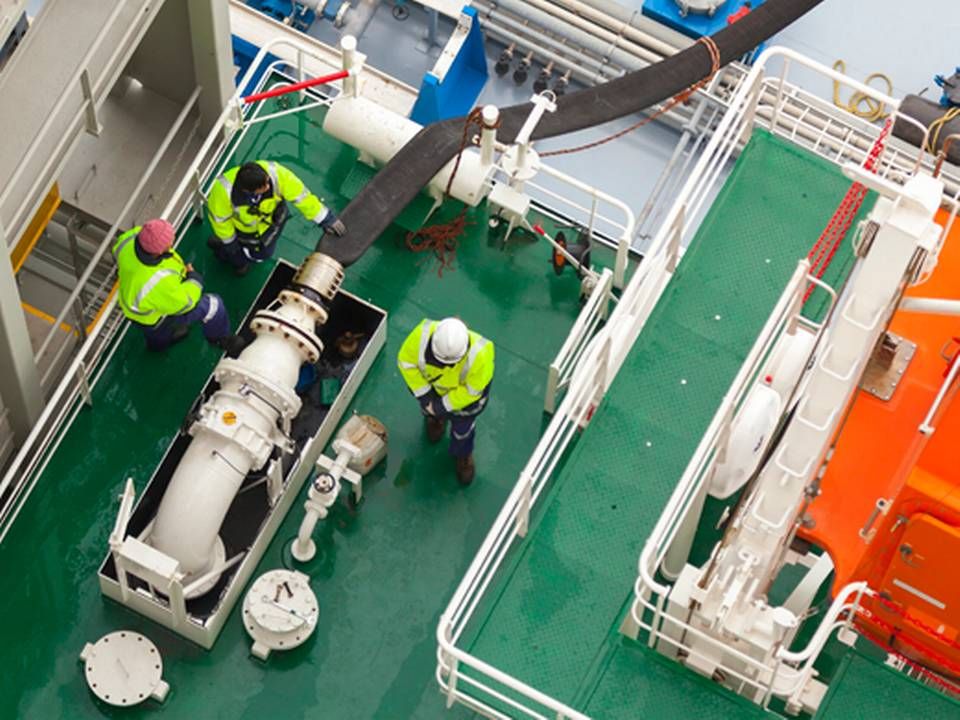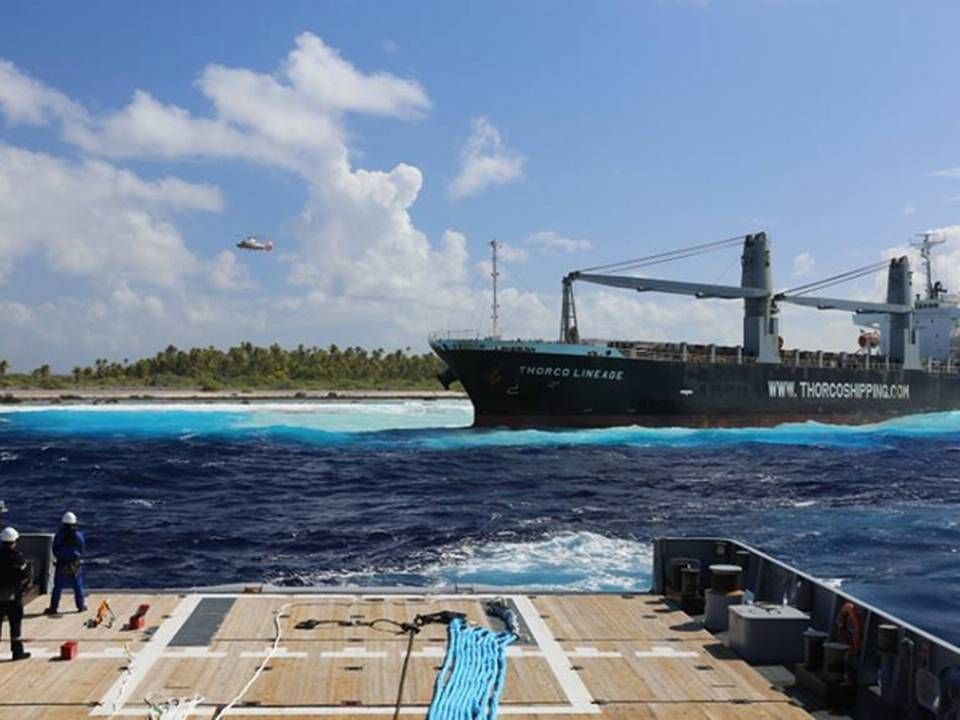Hafnia wants shipping to join forces against bad bunker

Hafnia calls on the shipping sector to join forces to fight the problems with bad bunker, which have been going on for months and threaten to erode trust between shipowners and their suppliers.
The call comes after the Danish shipping group, like many others, has tanked contaminated bunker on several of the ships it manages.
"I want to call on shipowners to get together and share their knowledge, so that we can all learn more about the problems. We have to stand together, as not all suppliers have been equally willing to help," says Peter Grünwaldt, head of bunker at Hafnia Ship Management, which buys fuel on behalf of Hafnia Tankers and numerous other shipowners.
He adds that input from suppliers is also welcome.
"Especially because they are ultimately the ones who have created the problems," Grünwaldt tells ShippingWatch.
The contaminated bunker oil first emerged in Houston early this year and has since spread to Panama and Singapore. In recent weeks, there have also been rumors about incidents in Hong Kong and Malaysia. No one has so far claimed responsibility for putting the bad bunker into circulation.
"If we shipowners sit down together and review the entire supply chain, we should be able to find out where the problems come from, and I don't understand why this hasn't already be attempted by one of the industry associations. In Denmark alone there are many shipowners, including ourselves, who are hit. So the problem needs to be solved, as it's clear that there are some costs that we need to try to cover," says Grünwaldt, adding that shipping companies could be affected.
"This epidemic has reached an scale that I think is unprecedented. If you have a large fleet that bunkers in the affected ports, there's zero chance that you haven't gotten some of this oil on board. That's how widespread it is. It's pure luck that there haven't been more dangerous situations, for instance when engines suddenly stop. Let's not wait for the major disaster before we act," he says.
Deadline for complaints causing problems
It remains unclear exactly why the oil has become so contaminated that it causes problems for ships across the globe. Several tests indicate that it may have become mixed with shale oil.
This could, in the worst cases, result in engine failure and added costs when systems have to be cleaned in order to avoid damages. It is also virtually impossible for shipowners to safeguard themselves, as the impurities do not appear in the tests currently being used to monitor quality.
The problem is exacerbated by the fact that weeks often pass before shipowners discover that contaminated bunker has been tanked on the vessel, as they often do not burn the heavy fuel oil until the ship has left the ECA zone.
At this point, the deadline for filing complaints with suppliers will have typically expired, and when the time comes, they often decline to pay the bill. This was, for instance, the case in the grounding of Thorco Lineage, as ShippingWatch reported last week.
The ships possibly ran aground after an engine failure caused by contaminated bunker oil. But German bunker fuel supplier Bomin denies liability, as no complaint about the oil had been submitted within 14 days of the bunkering.
Could lead to damage suit
Grünwaldt stresses that Hafnia only deals with reputable suppliers and that the company takes all necessary precautions to avoid getting contaminated bunker aboard. Still, the shipping company has been hit.
He thus also thinks that fuel suppliers should acknowledge their responsibility and help resolve the problem.
"I accept that they make a living from mixing oils, and that this process can sometimes fail. In this case they haven't done their homework properly when they mixed the oil and sold it on a large scale. I also think they should have reacted the first time they discovered the problems, rather than putting their head in the sand and hide behind poor excuses and clauses. It ends up becoming buyer versus seller, and then it's shocking that several of them haven't been very constructive," he says.
The anger among shipowners has grown due to the fact that the oil is apparently still being sold, even though it was quickly clear that it was unfit for use by most ships.
"Don't try to tell me that a major bunker supplier in the US, which supplies several hundred thousands of tons of fuel oil annually, doesn't know that something is very wrong when it starts to hear from 25-30 shipowners claiming that there are problems with the oil," says Grünwaldt.
Could joint legal action come into play?
"We're not ruling anything out. We'd rather resolve this in a proper manner. No one wants to spend a lot of time and money on lawyers. But, ultimately, we need to cover the losses we've suffered due to this," he says.
Hafnia informs that it is prepared to talk to all the shipping companies affected by these problems, but the company adds that it would also like to see this dialog happen through industry associations such as IBIA or IMO.
English Edit: Daniel Logan Berg-Munch
This is what it looks like when ships burn bad bunker
Related articles
This is what it looks like when ships burn bad bunker
For subscribers
Damage claims from bad bunker grow in number
For subscribers



















